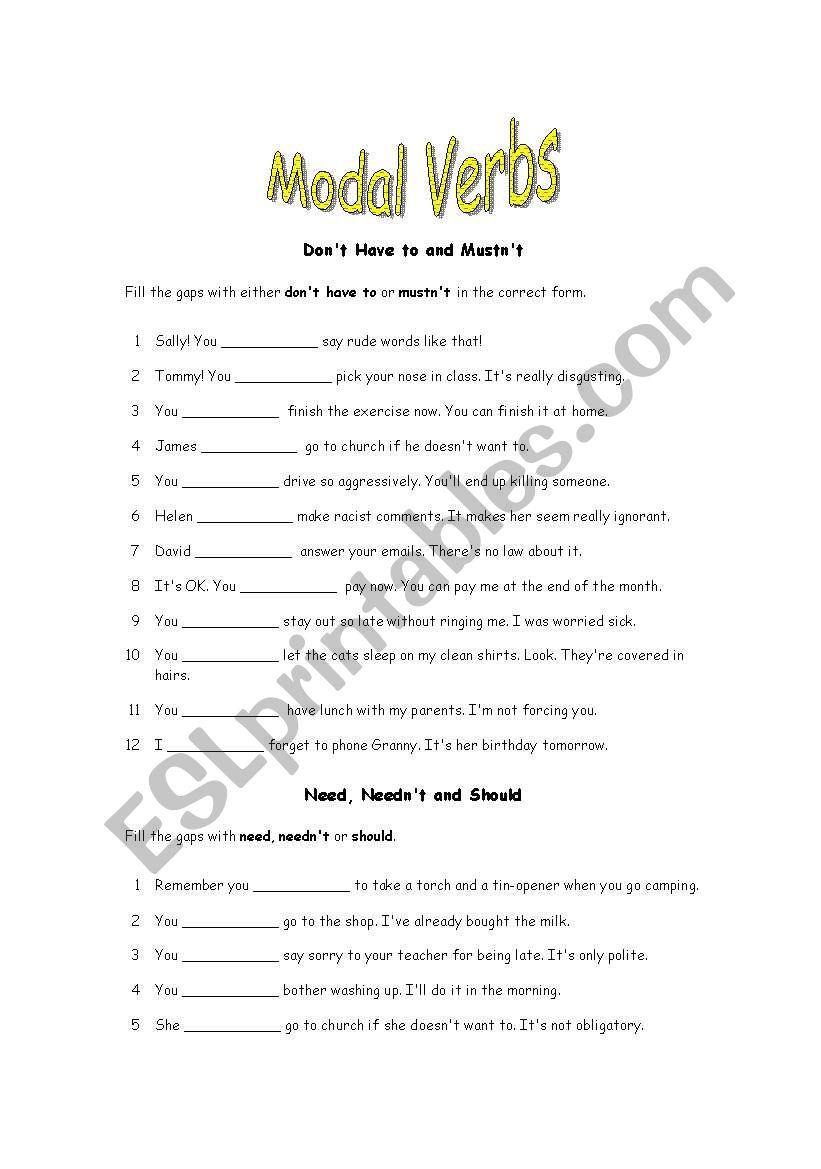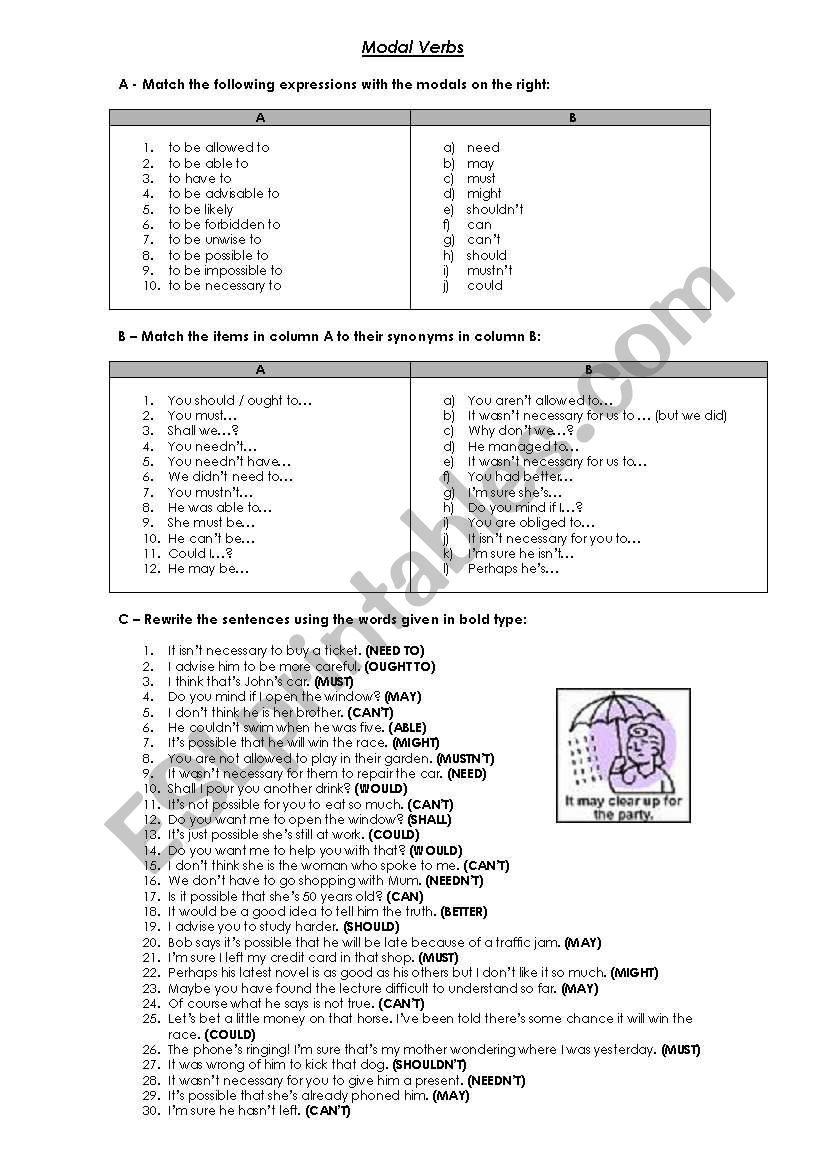
The great thing about modal verbs is that they all follow three simple rules to make affirmative, negative and interrogative sentences. Each modal verb describes either how, why or when an action happens. In fact, most modal verbs have no real meaning without another verb. Modal verbs are special verbs that we use in combination with another verb. Let’s have a look to see what modal verbs have in common and the many ways they can be used. So learning how to use modal verbs can really improve your level of fluency. look after our aged parents.Modal verbs are a fundamental part of English because they express obligations, abilities, probabilities, suggestions and much more. Modals Practice Exercises Example With Answers for Class 9 CBSEįill in the blanks using suitable modals. (f) will Score: For each correct answer award yourself 1 mark.ģ or less – You need to develop your grammar skills through adequate practice.

be done by digging a percolation tank near your house. build in a water harvesting system in your house. largely solve your water problems in future years. like to offer a word of advice that (b) ………………………. I was delighted to know that you are building a new house. Modals Solved Exercises Example With Answers for Class 9 CBSEĬomplete the letter using the correct word to fill in each blank. We use them to show or indicate the possibility, certainty, permission, ability, and probability. Modals Exercise For Class 9 CBSE With Answers PDF We also providing Extra Questions for Class 9 English Chapter wise. In this article, we’ll get you started with the basics of sentence structure, punctuation, parts of speech, and more.

They have a great variety of communicative functions.īasic English Grammar rules can be tricky. They are different from normal verbs like “work, play, visit…” They give additional information about the function of the main verb that follows it. Modals (also called modal verbs, modal auxiliary verbs, modal auxiliaries) are special verbs that behave irregularly in English.


 0 kommentar(er)
0 kommentar(er)
